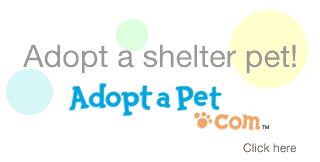Millennials are Driving Pet Industry's Expansion, Yet Criticized by Experts
By Amy XieJuly 24, 2014
NEW YORK (MainStreet) – Millennials are usually seen as a demographic that is irrational, debt-saddled, underemployed and financially irresponsible. That inevitably means low disposable income. But you may be surprised by how much money 20-somethings are willing to spend when it comes to taking care of their dogs.
According to a report aggregated by an Arlington, Virginia-based market research firm Wakefield Research, 76% of Millennials are more willing to make impulse and pampering purchases for their pet than they would for themselves on certain pricey items, such as expensive treats or a custom bed. By contrast, only half of Boomers would like to spoil their pets by purchasing those items.
"It's a trend that Millennials are becoming the major power to the future consuming market in the pet industry," says Nathan Ritcher, CEO of the Wakefield Research. As the pet industry is predicted to be a $59 billion market in 2014, according to American Pet Products Association, Ritcher said, "It's good evidence to show that Millennials are redefining which products are more important."
Millennials made up less than a third of the U.S. adult population, yet their spending power is expected to surpass that of Boomers at $3.39 trillion in the next four years. As pet owners, they are grandiose, conscientious, and irrational; they think differently about what is "essential" when purchasing products.
Wakefield's report shows more than half of the younger shoppers own clothing for their pets and think it's important to carry their pets as a kind of accessory so that they are able to travel with their pets easily; meanwhile, pet supplies that contain chemical-free, natural, organic and hypoallergenic elements are more demanded by them than Boomers, since they usually value health and food safety more than their parents and grandparents.
But how come the younger generation who often asks for financial support is actually the main force of pet ownership with large expenditures?
The psychological explanation behind their consuming behavior is that most Millennials are narcissists who are pursuing self-recognition by all kinds of means, according to Dr. Peter Noel Murray, principal of a consumer psychology practice based in New York City.
"Their choices of what to acquire in life are made in large part on how well they validate their positive self-image," he told MainStreet.
Unlike most pet owners who are looking for companionship and love from their pets, said Murray, "the appeal of a pet to this young adult is more likely to be how well it reflects on the individual and captures the attention of friends."
To be noticeable, social media encourages Millennials to be exposed actively as pet owners, which also applies to the characteristic of being narcissistic. According to Murray, self-focus on social networks and the obsession with "selfies" both explained their unquenchable thirst for recognition.
"They see themselves, and want others to see them, as special and unique," he said.
Wakefield's report indicates that only 10% Millennials are not on social platforms. For Millennials who have a social media account for their pets, 66% are on Facebook, 38% are on Twitter, and 34% are on Instagram. Also, more than half of Millennials share "selfies" while only 9% of Boomers would do the same.
As the irrational behaviors have stimulated the pet industry, marketers are seizing the opportunity to cater to the potential market demand from Millennials.
"We are creating incredible mobile friendly website and apps and personalized offers to interact with our younger shoppers," says Jeff Eckerling, CEO of Doggyloot.com, a Chicago-based e-commerce site for dog products. Currently, the online shopping hub has more than one million subscribers, according to Eckerling, and most of them are at their mid-40s. That said, Millennials have brought one third of the web traffic to Doggyloot's website and 23% of them are being active on its Facebook fan page.
In the Wakefield report, despite the fact that Millennials see their pets as their family members like Boomers do, they are more likely to feel that raising a pet is part of the preparation for having a family.
"A lot of Millennials view their pets as a way to train themselves to be a good parent in the future," says Ritcher.
In response to that, Murray thinks it's wrong to confuse the relationship between having a pet and raising a kid.
"They think it might be helpful to develop their responsibilities [to be a future parent] but it's unrealistic; it's not happening," he said, "They are focused on valuing things but they don't care how they attain those."
In addition, he is also concerned since Millennials are highly prone to discard items when they no longer serve their purpose. When their pets have slowed down middle-aged or grown old and need comfort and care, Millennials may not be able to fulfill the psychological needs of their formerly pampered pets, Murray says.
"It could well turn into a crisis for animal shelters in the not-too-distant future," he said.
According to a report aggregated by an Arlington, Virginia-based market research firm Wakefield Research, 76% of Millennials are more willing to make impulse and pampering purchases for their pet than they would for themselves on certain pricey items, such as expensive treats or a custom bed. By contrast, only half of Boomers would like to spoil their pets by purchasing those items.
"It's a trend that Millennials are becoming the major power to the future consuming market in the pet industry," says Nathan Ritcher, CEO of the Wakefield Research. As the pet industry is predicted to be a $59 billion market in 2014, according to American Pet Products Association, Ritcher said, "It's good evidence to show that Millennials are redefining which products are more important."
Millennials made up less than a third of the U.S. adult population, yet their spending power is expected to surpass that of Boomers at $3.39 trillion in the next four years. As pet owners, they are grandiose, conscientious, and irrational; they think differently about what is "essential" when purchasing products.
Wakefield's report shows more than half of the younger shoppers own clothing for their pets and think it's important to carry their pets as a kind of accessory so that they are able to travel with their pets easily; meanwhile, pet supplies that contain chemical-free, natural, organic and hypoallergenic elements are more demanded by them than Boomers, since they usually value health and food safety more than their parents and grandparents.
But how come the younger generation who often asks for financial support is actually the main force of pet ownership with large expenditures?
The psychological explanation behind their consuming behavior is that most Millennials are narcissists who are pursuing self-recognition by all kinds of means, according to Dr. Peter Noel Murray, principal of a consumer psychology practice based in New York City.
"Their choices of what to acquire in life are made in large part on how well they validate their positive self-image," he told MainStreet.
Unlike most pet owners who are looking for companionship and love from their pets, said Murray, "the appeal of a pet to this young adult is more likely to be how well it reflects on the individual and captures the attention of friends."
To be noticeable, social media encourages Millennials to be exposed actively as pet owners, which also applies to the characteristic of being narcissistic. According to Murray, self-focus on social networks and the obsession with "selfies" both explained their unquenchable thirst for recognition.
"They see themselves, and want others to see them, as special and unique," he said.
Wakefield's report indicates that only 10% Millennials are not on social platforms. For Millennials who have a social media account for their pets, 66% are on Facebook, 38% are on Twitter, and 34% are on Instagram. Also, more than half of Millennials share "selfies" while only 9% of Boomers would do the same.
As the irrational behaviors have stimulated the pet industry, marketers are seizing the opportunity to cater to the potential market demand from Millennials.
"We are creating incredible mobile friendly website and apps and personalized offers to interact with our younger shoppers," says Jeff Eckerling, CEO of Doggyloot.com, a Chicago-based e-commerce site for dog products. Currently, the online shopping hub has more than one million subscribers, according to Eckerling, and most of them are at their mid-40s. That said, Millennials have brought one third of the web traffic to Doggyloot's website and 23% of them are being active on its Facebook fan page.
In the Wakefield report, despite the fact that Millennials see their pets as their family members like Boomers do, they are more likely to feel that raising a pet is part of the preparation for having a family.
"A lot of Millennials view their pets as a way to train themselves to be a good parent in the future," says Ritcher.
In response to that, Murray thinks it's wrong to confuse the relationship between having a pet and raising a kid.
"They think it might be helpful to develop their responsibilities [to be a future parent] but it's unrealistic; it's not happening," he said, "They are focused on valuing things but they don't care how they attain those."
In addition, he is also concerned since Millennials are highly prone to discard items when they no longer serve their purpose. When their pets have slowed down middle-aged or grown old and need comfort and care, Millennials may not be able to fulfill the psychological needs of their formerly pampered pets, Murray says.
"It could well turn into a crisis for animal shelters in the not-too-distant future," he said.
Source: Mainstreet
©2014 TheStreet
Also, see:
- Financial Assistance with Vet Bills
- 38 Benefits of Owning a Dog
- 10 Compelling Reasons to Add a Shelter Dog to Your Life
- Top 10 Reasons Dogs are Dumped at Shelters
- BOOK: "Don't Dump the Dog"
- Adopt from a Local Rescue or Shelter
This entry was posted
on Thursday, July 24, 2014
at Thursday, July 24, 2014
and is filed under
adoption,
age,
behavior,
children,
Dogs,
foods,
Information,
news,
population,
rescue,
shelters,
socializing,
Top Dog Blog
. You can follow any responses to this entry through the
comments feed
.






































